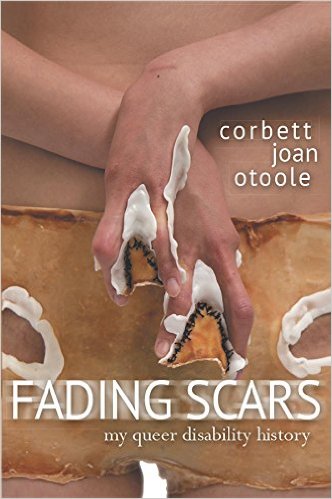Book Reading with Corbett OToole, 504 Protester and Disability Activist

The Paul K. Longmore Institute on Disability invites you to join us for a book reading: Corbett Joan OToole’s Fading Scars: My Queer Disability History. Wednesday Nov. 11, 2015 from 4 – 6pm at the Ed Roberts Campus, 3075 Adeline St, Berkeley (above Ashby Bart).
Corbett O'Toole provides an insider’s view on the historic changes for disabled people in the United States. She worked at the Berkeley Center for Independent Living and trained over 1,000 people with the 504 Training Project at the Disability Rights Education and Defense Fund (DREDF). She co-organized the Disabled Women’s Symposium at the United Nations Fourth Conference on Women in Beijing. She co-organized the first International Queer Disability Conference in 2002.
The Book:
“Fading Scars: My Queer Disability History is like a song - an anthem, a lullaby, a ballad, a love lyric and a chant all at once. This book of essays chronicles one person’s life, but also the 40 years that disability rights and disability justice shaped American history. Its first-person accounts of historical events, fierce focus on disabled identities, and consistently accessible language and structure make it unusual-perhaps even unique-among disability memoirs. Bursting with ideas, stories, and arguments, Fading Scars is a book in which experience accrues into knowledge and emerges through the written word as wisdom. Fading Scars combines razor-sharp organization with passages of lyrical beauty. It establishes a new standard, perhaps even the beginning of a new aesthetic, for disability writing.”
Margaret Price, author of Mad at School: Rhetorics of Mental Disability and Academic Life
“Corbett illustrates disability history with clear and funny stories. Her work builds a home where those of us who have lived on the sidelines can seek shelter.”
Naomi Ortiz, Writer, Artist and Disability Justice Activist